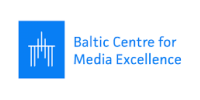BECID invited to see the world of images in a “different way” (Lithuania)
BECID together with “Nepatogus kinas” (media education platform in Lithuania) in order to update and strengthen the knowledge of teachers, educators and youth workers about the influence of the media on us, especially the young generation, and also to discuss what kind of media literacy is most needed today, on February 21st organized a virtual screening of the documentary “And the King Said: What a Fantastic Machine!” and the seminar “Visual Media: Divides or Connects?”
During the seminar, BECID project researchers Auksė Balčytienė and Kristina Juraitė discussed the main topics and problems explored in the movie. The professors of the Public Communication Department of Vytautas Magnus University talked about the power of images, invited to see the world saturated with images and temptations in a “different way” and answered why it is important to ask ourselves every moment – is what we see on a smartphone or computer screen the truth?
Although video media has become a part of our daily life and identity, surrounded by endless images, we are often lost and do not know what is real and what is not, what is “private” and what is “public”, where is the line between “safe” and “dangerous”?
The award-winning movie “And the King Said: What a Fantastic Machine!” traces the history of moving images from the first films and photographs to today’s Instagram. The film touches on the topic of media and ethics, media and politics, talks about the negative effects of images.
According to K. Juraitė, the media and information have become a weapon, they are clearly being used for warfare.
“From the beginning of the camera to the present day, the question of the boundary between cinema as an art and a political tool, and to what extent the creator is responsible for the content he creates? It is important to pay attention to what the creator’s perspective is – what is his aim, what he shows and what he doesn’t, and for what purpose he does it? We are all in the field of information warfare, attacked by misinformation, fake news, political propaganda. This film helps to see more layers and to think about a wider context”, says K. Juraitė.
She adds that the idea of media literacy is that we must develop a sense of quality, answer to ourselves what content meets our quality criteria and be guided by them when choosing and creating content.
“Creativity without knowledge, media and information literacy is unthinkable. The most important thing is knowledge, understanding, value base, which is formed from a young age”, comments K. Juraitė.
According to A. Balčytienė, in order to know what is quality, we have to learn from quality examples. One such, according to the professor, is the film “And the king said: what a fantastic Machine!”







